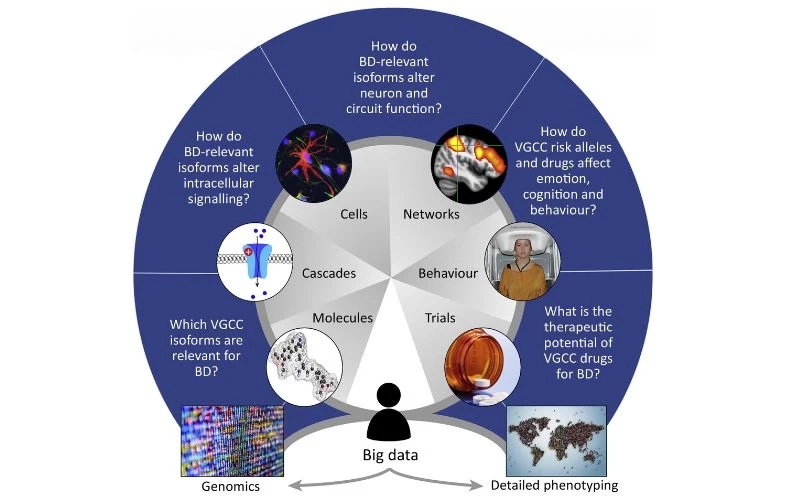This blog post delves into the multifaceted role of Cognitive Behavioral Therapy (CBT), Family-Focused Therapy (FFT), Interpersonal and Social Rhythm Therapy (IPSRT), and Dialectical Behavior Therapy (DBT) in managing Bipolar Disorder, backed by real-life examples and case studies.
Understanding Bipolar Disorder and Its Treatment
Bipolar Disorder presents unique challenges, including the unpredictability of mood swings and the impact on daily functioning. A holistic treatment approach, integrating medication, therapy, and lifestyle adjustments, offers the best strategy for management. Among therapeutic interventions, CBT, FFT, IPSRT, and DBT stand out for their effectiveness in addressing different aspects of the disorder.
Cognitive Behavioral Therapy (CBT) for Bipolar Disorder
CBT, a well-established therapy, focuses on identifying and modifying negative thought patterns and behaviors. For individuals with Bipolar Disorder, CBT helps in understanding the relationship between thoughts, feelings, and behaviors, thereby facilitating better mood regulation and stress management. For example, John, diagnosed with Bipolar I Disorder, found CBT instrumental in managing his depressive episodes by challenging his pessimistic thoughts and engaging in activities that boosted his mood.
Family-Focused Therapy (FFT) in Bipolar Disorder Management
FFT emphasizes the involvement of family members in the treatment process, improving communication and problem-solving skills within the family unit. This approach acknowledges the crucial support role families play and educates them on the disorder. Emily's story illustrates FFT's impact, where her family's understanding and supportive involvement led to a significant reduction in her mood episodes' frequency and severity.
Interpersonal and Social Rhythm Therapy (IPSRT) for Maintaining Stability
IPSRT combines the principles of interpersonal psychotherapy with behavioral techniques to stabilize daily routines. It highlights the importance of regular sleep patterns, eating habits, and exercise in managing Bipolar Disorder Treatment NJ. A case study of Alex, who struggled with erratic life routines exacerbating his condition, showed how IPSRT helped him establish a structured daily routine, significantly improving his mood stability.
Dialectical Behavior Therapy (DBT) for Emotional Regulation
DBT teaches skills for mindfulness, distress tolerance, emotional regulation, and interpersonal effectiveness. It's particularly beneficial for those with Bipolar Disorder Treatment NJ who experience intense emotional states. Sarah's journey with DBT, after years of battling severe emotional dysregulation, showcases how DBT provided her with the tools to navigate her emotions more effectively and build healthier relationships.
Integrating Therapies for Comprehensive Care
The integration of CBT, FFT, IPSRT, and DBT offers a robust framework for managing Bipolar Disorder. Tailoring therapy plans to the individual's specific needs, symptoms, and life circumstances can enhance treatment effectiveness. The synergy between these therapies supports a holistic approach, addressing the biological, psychological, and social dimensions of the disorder.
Challenges in Accessing and Implementing Therapy
Despite their proven effectiveness, accessing these therapies can be daunting due to costs, limited availability of trained therapists, and stigma. Overcoming these barriers requires a concerted effort to increase awareness, expand insurance coverage, and enhance therapist training.
Supporting Your Journey: Resources and Encouragement
For those navigating Bipolar Disorder Treatment NJ, various resources are available, including professional organizations, online platforms, and mobile apps that offer access to trained therapists and supportive communities. Encouragement comes from stories like John's, Emily's, Alex's, and Sarah's, which highlight the transformative power of therapy.
outcome
Therapy, beyond medication, plays a pivotal role in managing Bipolar Disorder, offering tools for mood regulation, emotional resilience, and improved relationships. CBT, FFT, IPSRT, and DBT, each with its unique focus, collectively provide a comprehensive treatment approach. By exploring these therapies, individuals living with Bipolar Disorder can find strategies that offer hope and pathways to a balanced, fulfilling life.



